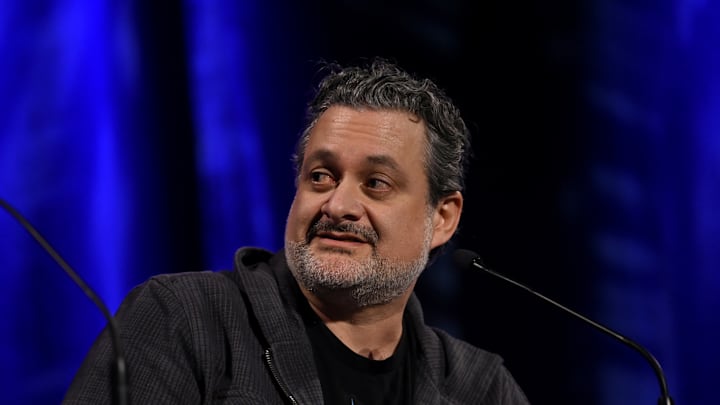We are approaching the 25th anniversary of Star Wars Episode I: The Phantom Menace. Despite the mixed feelings about this movie even 25 years after its release, several years ago, Dave Filoni explained the brilliance of the movie.
Dave Filoni explains the film's brilliance
The film's legacy will always be mixed among fans. Many truly did not like the film for its special effects, clunky dialogue, and certain characters. Many felt that the film was a complete departure from the original trilogy and should not be considered part of the same universe.
However, as decades have passed and a new generation of fans who grew up with the prequels has begun to have more of a voice in the fandom, there have been an increasing number of defenders of the Star Wars prequels. Some are fans who truly loved the movie when they were kids now speaking up about it.
One such defender is the current Chief Creative Officer of Lucasfilm, Dave Filoni. Filoni worked directly with George Lucas on the animated series Star Wars: The Clone Wars. Therefore, many fans regard him as the closest thing the franchise has to Lucas in terms of someone who has a grasp of the core of Star Wars and has an overarching vision.
Several years ago, in the Disney+ series Disney Gallery / Star Wars: The Mandalorian, viewers were given a behind-the-scenes look at the creation of The Mandalorian. One episode focuses on the legacy of Star Wars and explores how storytellers try to honor the legacy of George Lucas and make stories that are consistent with his vision for the franchise.
Towards the end of this episode, Filoni gives a roughly 6-minute monologue praising Lucas's work on the prequels. He specifically highlights the famous lightsaber duel at the end of The Phantom Menace.
Filoni explains why this duel is so much more than a cool lightsaber fight. Instead, the "Duel of the Fates" revolves around the fate of Anakin Skywalker. If Qui-Gon Jinn survives the fight, Anakin will be trained by a more experienced Jedi who has not become as detached and uncaring as other Jedi have. Instead, Qui-Gon dies, and Obi-Wan Kenobi is forced to train Anakin because it is his master's wish final wish. Thus, Anakin is trained by someone who was not ready to be a master and who is more of an older brother figure to Anakin rather than the father figure that Anakin so desperately needed.
Filoni then connects this duel to the final duels in each of the George Lucas-helmed Skywalker Saga of Episodes 1-6. Filoni notes that when Anakin is faced with the choice of saving his son from the Emperor's torture via Force lightning, he is given the chance to be the father figure that he himself never had by destroying Palpatine and saving his son.
It is a really powerful and in-depth analysis that totally recontextualizes the prequels. Personally, it gave me a much more expansive view of the saga and allowed me to see those connections between the original trilogy and the prequel trilogy that were there, but I may have just been too young or not critical enough to see them.
Not everyone may like Filoni or agree with his analysis of The Phantom Menace, but one cannot doubt that the man cares and thinks deeply about Star Wars. Perhaps with 25 years passing and Filoni's recontextualization, many fans may have a greater appreciation for the film and understand that it is much deeper than many may realize.
